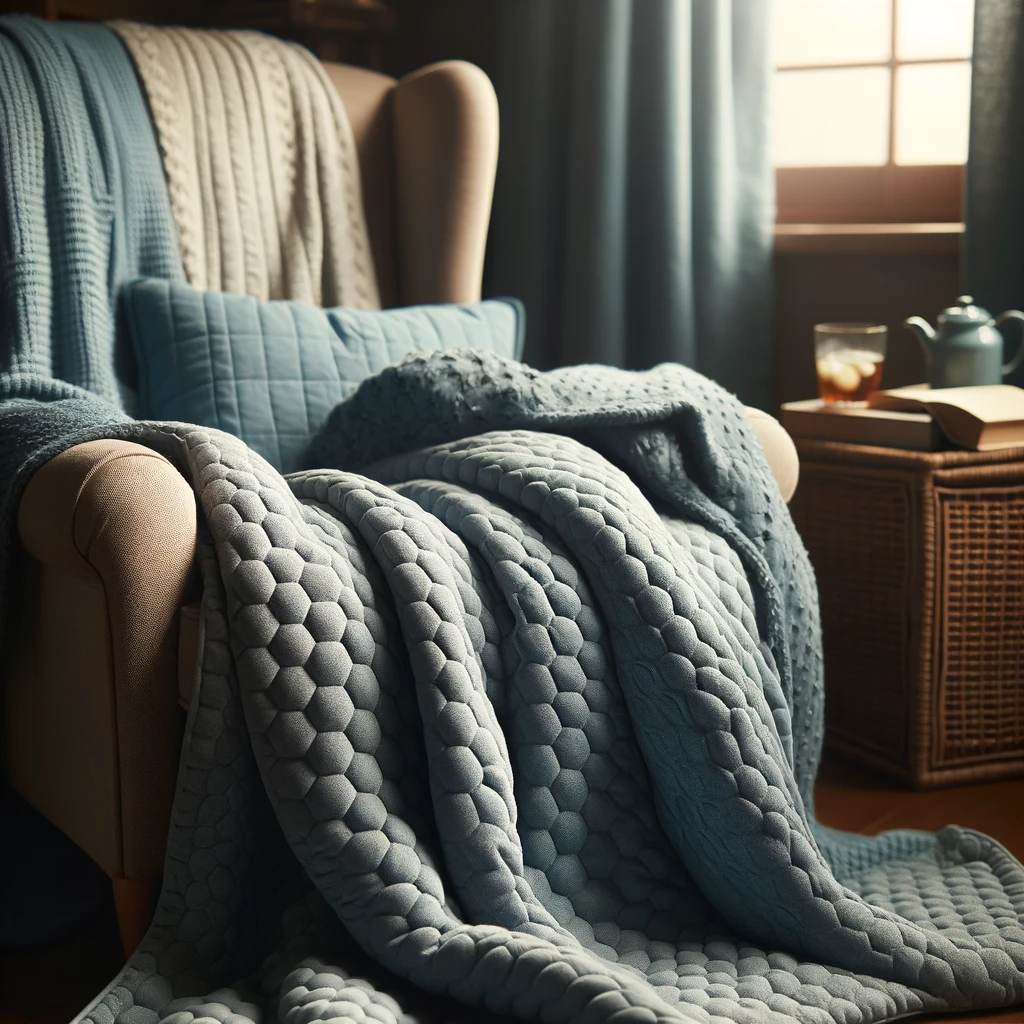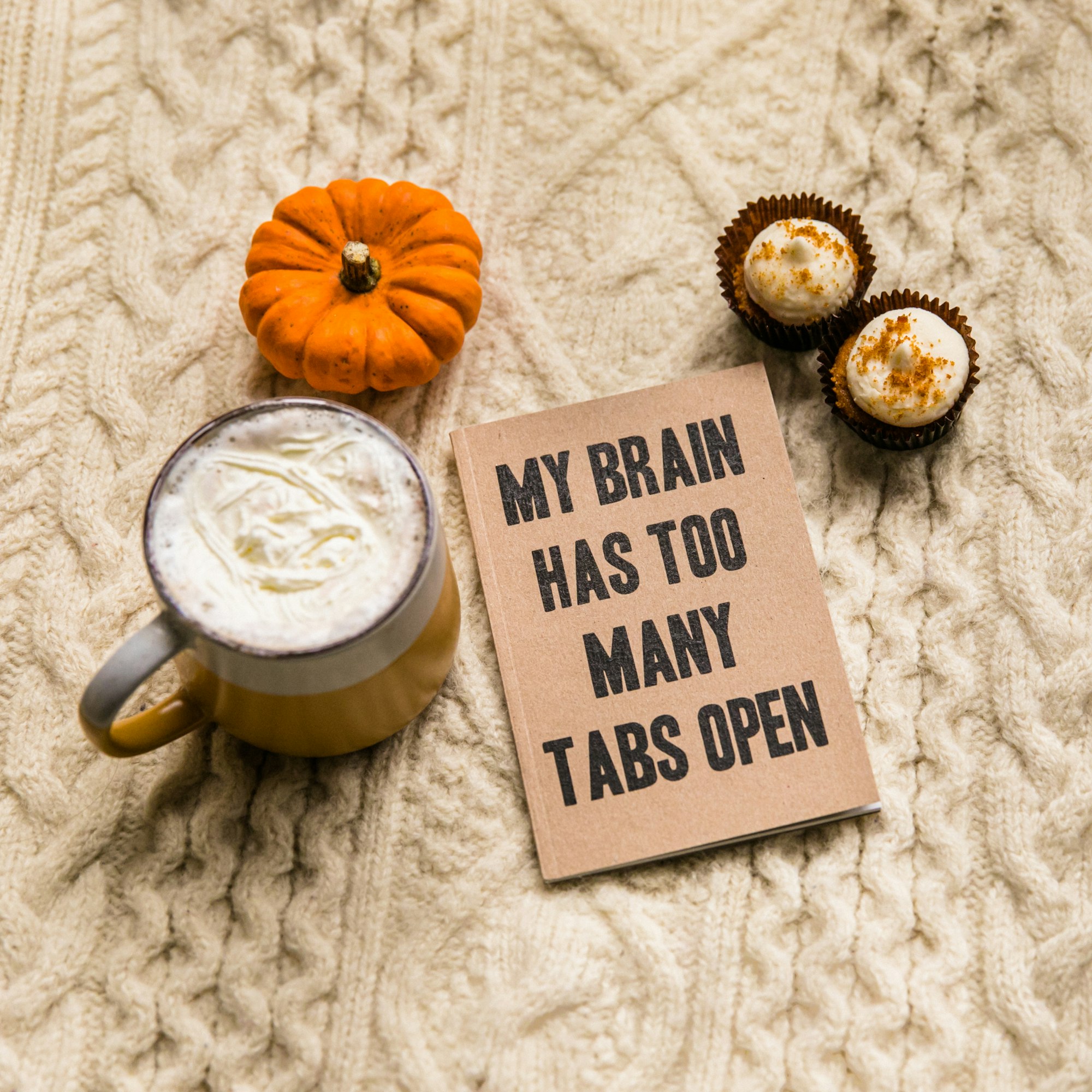Enhancing Well Being of Dementia Patients with Weighted Blankets a Comprehensive Guide to Benefits and Uses
Exploring the benefits of weighted blankets for dementia patients, this article delves into how these blankets enhance comfort and reduce anxiety. It covers scientific insights and practical experiences, offering a compassionate approach to improving patient well-being and sleep quality.

Introduction to Weighted Blankets: Comfort Beyond the Ordinary
Weighted blankets, more than just a trend in the world of sleep and relaxation aids, offer a unique sensory experience. They are designed to provide gentle, even pressure across the body, mimicking the feeling of being hugged or held. Weighted blankets are also used for improving sleep quality in children with autism spectrum disorder, but it is crucial to consider safety when using them for this purpose. This article explores the multifaceted benefits of weighted blankets, addressing queries like “does weighted blanket work” and “what are weighted blankets good for”.
The Soothing Power of Weighted Blankets
Weighted blankets, often associated with their benefits for anxiety relief and improved sleep, are increasingly recognized for their broader therapeutic potential, particularly for aging seniors and individuals with dementia. These blankets, by simulating a gentle hug, tap into the basic human need for touch and connection, offering comfort and a sense of security. Weighted therapy, which includes the use of weighted blankets, has shown potential benefits such as reducing anxiety, improving sleep quality, and enhancing overall well-being.
Understanding the Human Need for Touch: More than Just Comfort

A weighted blanket may give comfort to your loved one
The sensation of being hugged, which weighted blankets emulate, is not just comforting; it's fundamentally necessary for our psychological and emotional well-being. As humans, touch is one of our most primal needs. It's a form of communication, a way to express care, love, and security. This is especially pertinent for the elderly, who often experience loneliness and isolation. A weighted blanket can provide a sense of closeness and warmth, filling a void that many seniors face daily.
Weighted Blankets for Aging Seniors: A Gentle Embrace
For aging seniors, the benefits of sleeping with a weighted blanket extend beyond just improved sleep quality. Weighted blankets can also help alleviate symptoms of restless leg syndrome, which is common among older adults. These blankets can offer a constant, comforting presence, especially for those who live alone or are in care facilities. As mobility and social interactions decrease with age, the gentle, steady pressure of a weighted blanket can provide a comforting touch, reducing feelings of loneliness and anxiety.
Alleviating Symptoms of Dementia with Weighted Blankets
Dementia often leads to feelings of confusion, anxiety, and agitation. The use of weighted blankets for dementia patients can be a non-pharmacological approach to promote calmness and reduce anxiety through weight therapy. The deep pressure stimulation provided by these blankets can help in calming nerves and promoting deeper sleep, crucial for individuals struggling with disturbed sleep patterns due to Alzheimer’s disease or other forms of dementia.
Understanding Deep Pressure Stimulation: The Core of Weighted Blankets' Effectiveness
At the heart of weighted blankets’ therapeutic benefits is a concept known as deep pressure touch stimulation (DPS). This therapy involves applying gentle, firm pressure across the body, akin to a firm hug, swaddling, or massage. The science behind DPS reveals its efficacy in triggering a cascade of positive physiological changes. It’s particularly pertinent in discussions about “what are weighted blankets good for,” as it forms the backbone of their functionality.
The Hormonal Response: Balancing Cortisol and Serotonin
One of the key aspects of how weighted blankets work is their ability to influence hormonal levels. When the body experiences the uniform pressure from a weighted blanket, it responds by reducing the production of cortisol, often referred to as the stress hormone. Elevated cortisol levels are associated with stress, anxiety, and sleep disturbances – common issues among individuals with dementia or general anxiety.
Simultaneously, the use of a weighted blanket stimulates the production of serotonin, a neurotransmitter often dubbed the 'feel-good hormone.' Serotonin plays a crucial role in mood regulation, and its increase can lead to feelings of happiness and relaxation. This hormonal shift is a significant factor when considering "does weighted blanket work" for improving mood and reducing anxiety.
Impact on the Nervous System: Calming the Fight or Flight Response

Calming the fight or flight response
The gentle but firm pressure from weighted blankets has a profound effect on the autonomic nervous system, which controls the body's involuntary functions. By applying deep pressure, these blankets help shift the body from the sympathetic nervous system's 'fight or flight' response to the parasympathetic nervous system's 'rest and digest' state. This transition is vital for inducing a state of relaxation and calm, especially beneficial for those asking "what is a weighted blanket used for" in the context of stress and anxiety relief.
Enhancing Sleep Quality: The Role of Melatonin
In addition to balancing cortisol and serotonin, deep pressure stimulation from weighted blankets can also influence the production of melatonin, the hormone responsible for regulating sleep-wake cycles. By increasing melatonin levels, weighted blankets aid in improving sleep quality – a common query encapsulated in "sleeping with a weighted blanket" searches. This is particularly important for individuals with sleep disturbances, including seniors and those with dementia.
Weighted Blankets and Dementia: Addressing Agitation and Improving Mood
For individuals with dementia, agitation and mood disturbances are common challenges. The use of weighted blankets for dementia can be a gentle, non-pharmacological approach to mitigate these symptoms. The deep pressure provided by the blanket can decrease agitation, leading to a more relaxed and calm demeanor, which is crucial in dementia care.
Tailoring the Weight: How Heavy Should the Blanket Be?
The effectiveness of a weighted blanket is largely dependent on its weight, which should be appropriately tailored to the individual. The common guideline suggests that the blanket should weigh around 5-10% of the user's body weight. This ensures that the blanket provides enough pressure to be effective without being overwhelming or unsafe, especially important for "weighted blankets for anxiety" and "weighted blanket purpose" in therapeutic settings.
Safety First: Considering the Individual's Health
While weighted blankets offer numerous benefits, it’s essential to consider the safety and therapeutic effects, especially in relation to individual health conditions before use. This is especially true for elderly individuals or those with health issues like respiratory or circulatory problems. Consulting with a healthcare professional is important to ensure that the weighted blanket is a safe option, addressing concerns like “does weighted blanket work” in specific health contexts.
Embracing the Science for Better Well-being
The science behind weighted blankets – rooted in deep pressure stimulation – offers a fascinating glimpse into how simple changes in our physical environment can lead to significant improvements in our mental and emotional well-being. Whether it's for reducing anxiety, improving sleep, or aiding those with dementia, weighted blankets stand as a testament to the power of touch and the human body's amazing capacity to respond to gentle, nurturing pressure.
Weighted Blankets for Anxiety Relief: A Soothing Embrace
For those who suffer from anxiety, weighted blankets help provide a sanctuary of calm. The consistent pressure they provide has been likened to a therapeutic touch, potentially reducing anxiety and promoting a sense of security. We delve into how “weighted blankets for anxiety” are more than just a phrase, but a reality for many.
Deep Sleep with Weighted Blankets: Embracing the Night

Deep sleep with weighted blankets, embracing the tranquility of the night
One of the primary uses of weighted blankets is to enhance sleep quality. "Sleeping with a weighted blanket" can help people fall asleep faster and enjoy deeper, uninterrupted sleep. We'll explore the science behind this, answering the common question: "does weighted blanket work for better sleep?"
Diverse Uses: What is a Weighted Blanket Used For?
Beyond aiding sleep and reducing anxiety, weighted blankets have a variety of applications. They are used for deep pressure therapy during the day or night and can also be beneficial for individuals with conditions like dementia, as they promote calm and reduce agitation.
Weighted Blankets for Dementia and Alzheimer's: A Gentle Touch
Addressing the Challenges of Dementia with Non-Pharmacological Approaches
Caring for individuals with dementia or Alzheimer's disease presents unique challenges, particularly in managing symptoms like agitation and sleep disturbances. Weighted blankets have emerged as a promising, non-drug solution to these issues, offering a simple yet effective method to improve the quality of life for those living with dementia.
Understanding Dementia-Induced Agitation and Sleep Disturbances
Dementia often disrupts the brain's normal processing, leading to agitation, anxiety, and irregular sleep patterns. These symptoms not only affect the individual's quality of life but also pose challenges for caregivers. The calming effect of weighted blankets, through deep pressure stimulation, can play a crucial role in alleviating these symptoms.
The Soothing Effect of Weighted Blankets in Dementia Care
Weighted blankets for dementia provide gentle, steady pressure that mimics the sensation of being held or hugged. This deep pressure stimulation helps in reducing cortisol levels and increasing serotonin production, leading to relaxation and reduced stress. For individuals with dementia, this can translate to less agitation and a more stable mood, making daily care routines smoother for both the patient and the caregiver.
Improving Sleep Patterns in Alzheimer's and Dementia Patients
One of the primary benefits of using a weighted blanket for Alzheimer's and dementia patients is the improvement in sleep quality. The blankets help in creating a calming environment, conducive to falling asleep and staying asleep. This is particularly important as disrupted sleep can exacerbate other dementia-related symptoms and significantly impact the patient's overall health and well-being.
Weighted Blankets as a Non-Drug Approach: Safety and Comfort
In dementia care, there's a growing preference for non-pharmacological interventions due to the potential side effects of medications. Weighted blankets offer a safe alternative, with minimal risks, making them an appealing option for managing symptoms like anxiety and disrupted sleep. However, it's important to choose the right weight for the blanket and consult healthcare professionals to ensure it's appropriate for the individual's specific health needs.
Enhancing the Caregiving Experience

Weighted blankets should be a part of a care plan
For caregivers, managing dementia-related symptoms can be challenging. Introducing a weighted blanket into the care routine can provide a tool to help soothe and comfort the patient, potentially reducing the stress and difficulty associated with caregiving. This can lead to a more positive interaction between the caregiver and the patient, fostering a sense of ease and well-being.
The Importance of Personalized Care in Dementia
Each individual with dementia has unique needs and responses to different therapies. While weighted blankets can be beneficial, it's important to tailor their use to the individual's preferences and responses. Observing how the person with dementia reacts to the blanket and adjusting its use accordingly is crucial for maximizing its benefits.
A Step Towards Better Dementia Care
In conclusion, the use of weighted blankets in dementia care offers a simple, yet effective way to enhance the quality of life for those suffering from dementia and Alzheimer's. By providing a non-drug method to reduce agitation and improve sleep, weighted blankets can be an invaluable tool in the caregiving arsenal, contributing to a more tranquil and comfortable environment for both the patient and the caregiver. As with any intervention in dementia care, personalized approaches and close monitoring are key to ensuring the best outcomes.
FAQ: Weighted Blankets for Dementia Patients – Enhancing Well-Being
General Information
What is a weighted blanket?
A weighted blanket is a therapeutic blanket filled with materials like hypoallergenic poly pellets or glass beads, evenly distributed to provide gentle, consistent pressure over the body. This effect, known as deep pressure stimulation, promotes relaxation and improves overall well-being.
How does a weighted blanket work?
Weighted blankets apply gentle, even pressure across the body, which mimics the sensation of a comforting hug. This stimulates serotonin and melatonin levels, reduces the stress hormone cortisol, and helps calm the central nervous system.
Why are weighted blankets beneficial for dementia patients?
As dementia progresses, patients may experience sleep disturbances, anxious feelings, mood swings, and panic symptoms. Weighted blankets offer a calming and organizing effect, providing a naturally pleasant feeling that improves sleep quality and helps reduce anxiety.
Therapeutic Benefits
What conditions can weighted blankets help with?
Weighted blankets are proven effective for conditions such as:
- Dementia
- Sleep disorders
- Restless leg syndrome
- Anxiety disorders
- Panic symptoms
- Autism spectrum disorder
- ADHD spectrum disorder
- Sensory processing disorder
- Traumatic stress disorders
- Dental anxiety
- Chemotherapy treatments
What are the therapeutic effects of weighted blankets?
The deep pressure touch stimulation provided by weighted blankets can:
- Promote a good night's sleep and restful sleep.
- Reduce anxiety and stress levels.
- Calm fidgeting legs and restless movements.
- Support emotional regulation in therapy sessions.
- Improve focus and relaxation during housing transitions or medical checkups.
How does it benefit sleep quality?
The calming gentle pressure encourages the body to relax, helping individuals fall asleep faster and stay asleep longer. This leads to a full night's rest, benefiting both patients and family members alike.
Choosing the Right Weighted Blanket
What is the ideal weight and size of a weighted blanket?
The weight of a blanket should typically be 10% of the user’s body weight. For example:
- For a 150-pound individual, a 15-pound blanket is ideal.
- A smaller lap pad or shoulder wrap can be used for individuals with weaker muscle strength.
Sizes vary and should match the user's bed or personal preferences. Key dimensions include:
- Twin, full, queen, and king sizes.
- Lap pads and smaller blankets for targeted therapeutic use.
What materials are used in weighted blankets?
Weighted blankets are often filled with:
- Hypoallergenic poly pellets
- Glass beads
- Soft outer materials such as cotton or fleece for an incredibly soft touch.
Are weighted blankets safe for dementia patients?
Yes, weighted blankets are generally safe for dementia patients when used properly. However, patients with certain medical conditions (e.g., respiratory issues) should consult a doctor before use.
Usage Guidelines
How should weighted blankets be used for dementia patients?
- Start with one or two hours of use, then gradually increase duration as the patient becomes accustomed.
- Place the blanket over the patient’s body, ensuring evenly distributed weight.
- Use during naps, at bedtime, or during moments of anxious feelings or restlessness.
Can weighted blankets help with panic anxiety and stress?
Yes, weighted blankets have calming effects that reduce symptoms of panic anxiety, encourage relaxation, and alleviate stress hormone levels.
What is the difference between a full blanket and lap pads?
- Full blankets cover the entire blanket surface, ideal for restful sleep and nighttime use.
- Lap pads or shoulder wraps are smaller options that can provide targeted relief during the day, such as during therapy sessions or housing transitions.
Special Considerations
Can weighted blankets be used for patients with other conditions like ADHD or autism spectrum disorder?
Yes, weighted blankets are beneficial for individuals with ADHD, autism spectrum disorder, and sensory processing disorder. These conditions often involve heightened sensory sensitivity, and the deep pressure stimulation can provide a calming modality.
Are there any risks to using a weighted blanket?
Weighted blankets should not be used by individuals who:
- Have respiratory issues or difficulty moving.
- Cannot safely adjust the blanket on their own. Always ensure the blanket’s weight is appropriate for the user's body weight.
Can dementia patients use weighted blankets in nursing homes?
Yes, weighted blankets are commonly used in nursing homes to provide comfort and support to residents. However, care staff should be trained on their safe use.
Care and Maintenance
How should I clean a weighted blanket?
Check the description and product features for care instructions. Many weighted blankets:
- Have removable, machine-washable covers.
- Should be spot-cleaned if the weighted material cannot be submerged.
How long do weighted blankets typically last?
With proper care, weighted blankets can last several years. Look for high-quality materials and strong stitching for long-term use.
Purchasing and Shipping
Where can I purchase a weighted blanket?
Weighted blankets are widely available online and in stores across the PA, United States, and beyond. Many retailers offer a variety of weights, dimensions, and materials to suit individual needs.
How long does shipping take?
Most weighted blankets typically ship within 3-7 business days, depending on the retailer.
Are weighted blankets covered by insurance?
Weighted blankets may be considered for reimbursement under certain insurance plans if prescribed as part of a therapy treatment. Consult with your healthcare provider or insurance company for more information.
Feedback and Support
Can weighted blankets be shared among family members?
Yes, weighted blankets can benefit family members alike, especially those experiencing stress, sleep disturbances, or anxiety disorders.
Where can I find more information?
Resources like Tina Champagne, Med, and caregiver organizations provide insights into the safety and therapeutic effects of weighted blankets for individuals with brain-related conditions, including dementia.
A Caregivers Journey Incudes Loneliness
Compassion Burnout- a Harsh Reality for Many Caregivers
You might also like this article:








